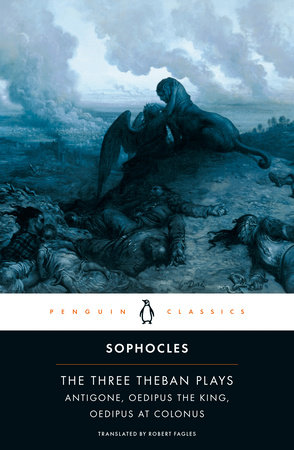
The Three Theban Plays
Antigone; Oedipus the King; Oedipus at Colonus
Sophocles; Translated by Robert Fagles; Introduction and Notes by Bernard Knox
Paperback
February 7, 1984 | ISBN 9780140444254
AmazonBarnes & NobleBooks A MillionBookshop.orgHudson BooksellersPowell'sTargetWalmart
Ebook
February 7, 1984 | ISBN 9781101042694
AmazonApple BooksBarnes & NobleBooks A MillionGoogle Play StoreKobo
About the Book
Towering over the rest of Greek tragedy, the three plays that tell the story of the fated Theban royal family—Antigone, Oedipus the King and Oedipus at Colonus—are among the most enduring and timeless dramas ever written. Robert Fagles's authoritative and acclaimed translation conveys all of Sophocles's lucidity and power: the cut and thrust of his dialogue, his ironic edge, the surge and majesty of his choruses and, above all, the agonies and triumphs of his characters. This Penguin Classics edition features an introduction and notes by the renowned classicist Bernard Knox.
For more than seventy years, Penguin has been the leading publisher of classic literature in the English-speaking world. With more than 1,700 titles, Penguin Classics represents a global bookshelf of the best works throughout history and across genres and disciplines. Readers trust the series to provide authoritative texts enhanced by introductions and notes by distinguished scholars and contemporary authors, as well as up-to-date translations by award-winning translators.


